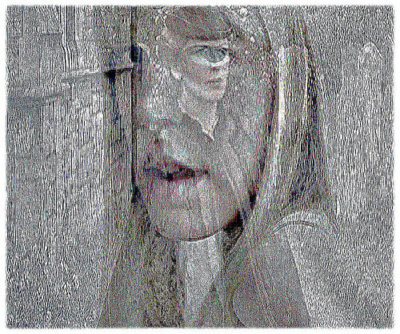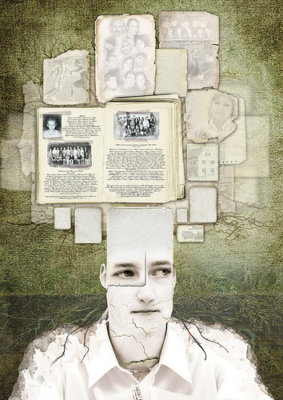Repressed Memories – Are They Real and Do They Really Matter?

By: Bill Strain
by Andrea M. Darcy
Repressed memories are an important yet controversial topic in psychology.
Do these memories really exist, do they matter as much as some people think, and how are they best dealt with if so?
What are repressed memories?
The concept of repressed memory is that when something happens that is very shocking or hard to handle, the mind decides to block it out.
An automatic process, it differs from suppression, where you can decide to no longer think about things because you don’t like them.
Freud developed the idea that repressed memories were delegated to a part of the mind called the ‘unconscious‘, and based psychoanalytical psychotherapy around the concept that what we hide in the unconscious is behind any struggles we have in life. He felt that it was necessary for clients to work with an analyst who was trained to help one ‘dig out’ and process such repressed memories.
Of course nowadays psychotherapy has moved on a bit. Few therapists think that repressed memories are the cause of all issues an individual has, although they are important and need consideration.
Neuroscience has also made it clear there is no such ‘lockup room’ in the brain where all our difficult memories are kept in cold storage waiting to be discovered. But the brain does indeed favour some memories while repressing others, albeit in a far more complicated and not completely understood fashion.
Why do repressed memories matter?
You might not consciously have access to your memory of traumatic events. But you will still be living with the results of the ‘forgotten’ situation, such as complicated emotions and strange behaviour patterns. If you can’t understand where such feelings and reactions come from you might just make excuses for them and continue to suffer in life, year after year.

By: Philip Bitnar
For example, you might have terrible difficulties letting other people get close to you and lack any long-term friendships. In your ‘memory’ you come from a happy family. So you tell yourself it’s just ‘timing’ and ‘bad luck’, and keep living a very lonely life.
If you went to therapy, you might discover your family was not so happy or that you have ‘forgotten’ your father’s violence toward your mother.
The controversy around repressed memories
It’s very difficult to prove that repressed memories really exist. They are not something, for example, a brain scan or microscope can pick up. And proving the phenomenon by research is tricky as it would involve monitoring people for years of their lives.
Repressed memories are also very difficult to prove as factual. The brain is a highly complicated and intelligent network. Unless many other people come forward with the same memory of a situation, it’s possible your recall is instead a false memory created by the brain to manage reality more effectively. It can do this by combining pieces of real memories with suggestions made by others.
And that is another danger of the concept of repressed memories – sometimes, sadly, we can be manipulated by others to believe something has happened to us when it hasn’t. This of course can leave someone very vulnerable and damaged.
Then there is the very nature of memory itself. Even conscious memories are not always ‘fact’, as they are one person’s perspective of a situation, coloured by their core beliefs, values, and previous experiences. Two people might witness a fight, and to one of them, who grew up in a violent household, it was just two drunken men pushing each other a bit. The other person, with no experience of violence and a high value of peace, might remember two men trying to kill each other.
The one type of trauma that has substantial evidence backing up people ‘forgetting’ then correctly remembering later in life is sexual abuse. There is a large number of cases where other family members or people involved have come forward to back up the recall of victims.
If repressed memories are so unreliable, why take them seriously?
It could be argued that science and research can often never account for the power of personal experience.

By: Shimelle Laine
What is more important, whether a memory is ‘perfectly true’, or whether what you perceive as having happened has affected your your ability to manage in life?
If unearthing and processing repressed memories leads to your greater happiness, than repressed memories are real for you and well worth engaging with.
Another way to look at it can be that what you are remembering, even if not factually perfect, was a real experience for the child you were at the time it happened.
If your own daughter came home from a party crying because none of the other kids wanted to talk to him or her, and felt that it was because she was ‘too ugly’, would you tell her she had no right to be sad because, from your adult perspective, the facts were her face was just fine? Or would you help her process what, to her, was very real rejection?
What is it like to experience repressed memories coming to light?
Not sure if you are or aren’t experiencing repressed memories rising up because you aren’t having a ‘flashback‘ experience? You are confusing amnesia and repressed memories.
With amnesia, where you have a head injury, you can suddenly be triggered by something like a sound or smell and a complete memory will come back to you.
Repressed memories tend to form gradually, with more of a ‘snowball’ effect.
You might suddenly realise that a piece of memory you’ve always had relates to something bigger, or begin to connect memory fragments together. You might even have dreams and waking visions once the process of ‘remembering’ begins that all add to the scene you are seeing.
For example, you could remember a scene of trees and feeling anxiety, then suddenly realise it’s a forgotten memory. Over the next few weeks new memories come. Sitting at your desk at work and eating an apple you remember your sister being in the forest with you one day, the two of you playing hide-and-seek and eating apples. Then you have recurring dream about being in a forest with your sister and being chased by a wolf. When you call the sister, she confirms you were both chased by a strange man in the woods one day, but she can’t remember what happened next either.
Other people find they discover repressed memories through processes like journalling or art therapy, where repeat metaphors or images come up. The metaphors grow and connect until the memory solidifies.
I think I have repressed memories. What do I do?
Experiencing repressed memories coming to light can feel confusing and overwhelming. You might wonder if you can trust yourself, or find that those you thought you trusted don’t believe you. This can leave you feeling lonely, worried, and anxious.
Online forums can feel helpful, as can self-help books.
But it is still advisable to seek proper support, especially if your memories involve those you usually turn to for help, who may disagree with what you are remembering. Support can be in the form of a local support group, or working one-on-one with a counsellor or psychotherapist.
A good therapist is neither judge or lawyer. They will support you in processing your experience without becoming an investigator of the ‘facts’, but rather by looking at how healing your experience can make your present day life more manageable.
Harley Therapy provides counsellors and therapists who are highly experienced at helping you navigate childhood trauma and repressed memories. If you can’t make it to one of our three London locations, we also provide online therapy wherever you are.
 Andrea M. Darcy is a health and wellbeing writer as well as mentor, trained in person-centred counselling and coaching. She often writes about trauma, relationships, and ADHD. Find her on Instagram @am_darcy
Andrea M. Darcy is a health and wellbeing writer as well as mentor, trained in person-centred counselling and coaching. She often writes about trauma, relationships, and ADHD. Find her on Instagram @am_darcy





who specifically wrote this article? where is the work cited?
Hi Jenna, our articles are written by an in house team, can we ask why you need this information? If you want to quote it in print you can cite it as Harley Therapy, if on the internet you need to link back to our page or reference our work, we do keep an eye our for any duplicate content and take appropriate action. Thanks.
I’d love to know where you get your information from! You have intrigued me and I’d love to find other perspectives? Do you have a works cited?